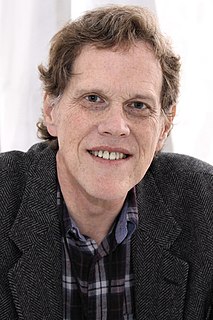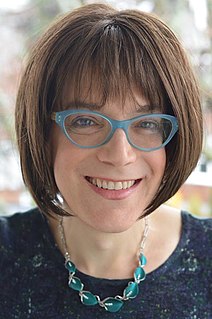Related Research Articles

Wystan Hugh Auden was a British-American poet. Auden's poetry was noted for its stylistic and technical achievement, its engagement with politics, morals, love, and religion, and its variety in tone, form, and content. Some of his best known poems are about love, such as "Funeral Blues"; on political and social themes, such as "September 1, 1939" and "The Shield of Achilles"; on cultural and psychological themes, such as The Age of Anxiety; and on religious themes such as "For the Time Being" and "Horae Canonicae".

Donald Grady Davidson was a U.S. poet, essayist, social and literary critic, and author. An English professor at Vanderbilt University from 1920 to 1965, he was a founding member of the Fugitives and the overlapping group Southern Agrarians, two literary groups based in Nashville, Tennessee. He was a supporter of segregation in the United States.

John Crowe Ransom was an American educator, scholar, literary critic, poet, essayist and editor. He is considered to be a founder of the New Criticism school of literary criticism. As a faculty member at Kenyon College, he was the first editor of the widely regarded Kenyon Review. Highly respected as a teacher and mentor to a generation of accomplished students, he also was a prize-winning poet and essayist.

John Orley Allen Tate, known professionally as Allen Tate, was an American poet, essayist, social commentator, and poet laureate from 1943 to 1944.

A literary magazine is a periodical devoted to literature in a broad sense. Literary magazines usually publish short stories, poetry, and essays, along with literary criticism, book reviews, biographical profiles of authors, interviews and letters. Literary magazines are often called literary journals, or little magazines, terms intended to contrast them with larger, commercial magazines.
James Martin Fenton is an English poet, journalist and literary critic. He is a former Oxford Professor of Poetry.

Sir John Frank Kermode, FBA was a British literary critic best known for his 1967 work The Sense of an Ending: Studies in the Theory of Fiction and for his extensive book-reviewing and editing.

Southern United States literature consists of American literature written about the Southern United States or by writers from the region. Literature written about the American South first began during the colonial era, and developed significantly during and after the period of slavery in the United States. Traditional historiography of Southern United States literature emphasized a unifying history of the region; the significance of family in the South's culture, a sense of community and the role of the individual, justice, the dominance of Christianity and the positive and negative impacts of religion, racial tensions, social class and the usage of local dialects. However, in recent decades, the scholarship of the New Southern Studies has decentralized these conventional tropes in favor of a more geographically, politically, and ideologically expansive "South" or "Souths".
Richard Tillinghast is a poet and author.
George Palmer Garrett was an American poet and novelist. He was the Poet Laureate of Virginia from 2002 to 2004. His novels include The Finished Man, Double Vision, and the Elizabethan Trilogy, composed of Death of the Fox, The Succession, and Entered from the Sun. He worked as a book reviewer and screenwriter, and taught at Cambridge University and, for many years, at the University of Virginia. He is the subject of critical books by R. H. W. Dillard, Casey Clabough, and Irving Malin.

Andrew Nelson Lytle was an American novelist, dramatist, essayist and professor of literature.

The Sewanee Review is an American literary magazine established in 1892. It is the oldest continuously published quarterly in the United States. It publishes original fiction and poetry, essays, reviews, and literary criticism.
William Peterfield Trent, LL.D., D.C.L. was an American academic and the author/editor of many books. He was a professor of English literature at Sewanee: The University of the South and Columbia University. While at Sewanee, he founded the Sewanee Review in 1892, a literary journal that continues to operate.

Sir Stephen Harold Spender was an English poet, novelist and essayist whose work concentrated on themes of social injustice and the class struggle. He was appointed Poet Laureate Consultant in Poetry by the United States Library of Congress in 1965.

Bruce Bond is an American poet and creative writing educator at the University of North Texas.
Bertram Wyatt-Brown was a noted historian of the Southern United States. He was the Richard J. Milbauer Professor Emeritus at the University of Florida, where he taught from 1983-2004; he also taught at Case Western University for nearly two decades. He studied the role of honor in southern society, in all classes, and wrote a family study of the Percy Family, including its twentieth-century authors William Alexander Percy and Walker Percy.

Stephanie Burt is a literary critic and poet who is Professor of English at Harvard University. The New York Times has called her "one of the most influential poetry critics of [her] generation". Burt grew up around Washington, D.C. She has published four collections of poetry and a large amount of literary criticism and research. Her work has appeared in The New York Times Book Review, The London Review of Books, The Times Literary Supplement, The Believer, and The Boston Review.
William Lewis Moody Jr. was an American financier and entrepreneur from Galveston, Texas, who founded a private bank, an insurance company, and one of the largest charitable foundations in the United States. Moody was active in the day-to-day operations of his companies until two days before his death.

Telfair Hodgson was an American Episcopal priest and academic administrator. He was the dean of the Theological Department at Sewanee: The University of the South from 1878 to 1893, and vice chancellor from 1879 to 1890. He was a co-founder and the managing editor of The Sewanee Review.
Seamus Perry DPhil is an author, academic, a Fellow and Tutor of Balliol College, Oxford and, since 2014, a Professor of English Literature in the English Faculty at the University of Oxford.
References
- ↑ Miller, Matthew L. "Spears, Monroe K." South Carolina Encyclopedia. Retrieved July 15, 2018.
- 1 2 3 4 5 "Monroe K. Spears, Literary Critic, 82". The New York Times. June 1, 1998. Retrieved July 15, 2018.
- ↑ Prunty, Wyatt (Summer 1998). "In Memoriam Monroe K. Spears". The Sewanee Review. 106 (3): 533–534. JSTOR 27548561.
- ↑ "Monroe K. Spears Award". Rice University. Retrieved July 15, 2018.